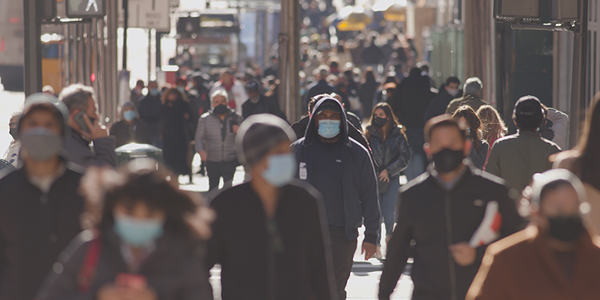
Leeds chosen by WHO to help create global health strategy
The University has partnered with the World Health Organisation to create a global strategy to protect populations against future threats such as the COVID-19 pandemic.

The University has partnered with the World Health Organisation to create a global strategy to protect populations against future threats such as the COVID-19 pandemic.

Scientists have used a fibre-optic sensor passed deep into a borehole to obtain the most detailed measurements of ice properties ever taken on the Greenland Ice Sheet.

Leading experts in the transmission of airborne pathogens are calling for tighter regulations to control air quality in buildings – as a way of reducing the spread of COVID-19 and other illnesses.

People living with heart failure could benefit from personalised pacemakers to help them exercise safely, thanks to a trial being carried out by a team in the School of Medicine.

Astronomers have identified the molecule methanol in the ‘warm zones’ of a protoplanetary disk circling a star about 360 light years from Earth.

Two prominent Leeds figures have been elected as Fellows of the prestigious Royal Society.

Sea level rise caused by melting ice could be halved this century if the Paris Agreement target of limiting warming to 1.5°C is met.

Scientists are warning that drinking water supplies in parts of rural West Africa are being contaminated by lead-containing materials used in small community water systems.

A good practice guide for caring for new and expectant mothers and the people close to them has been produced by Leeds and other university partners.

Appointments have been announced for two senior leadership roles supporting the University’s strategic ambitions.